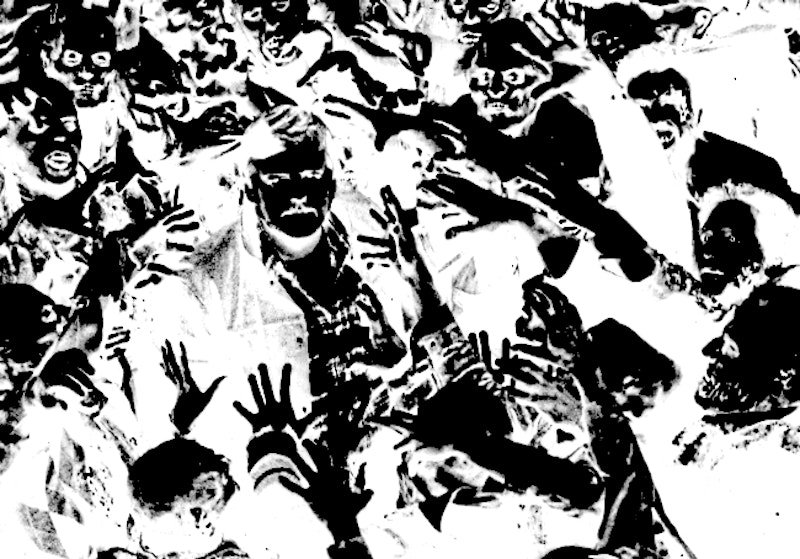Enzo regretted so much throughout his life: should’ve pursued architecture, should’ve gone into medicine, should’ve tried writing novels as a career. But he never envied the traveling musician—it seemed just as miserable now, in America, as it ever was in mid-20th century Europe. Enzo wasn’t a snob, just insecure, and unlike many of his intellectual peers, he enjoyed rock music. He liked The Beatles, Jimi Hendrix, The Kinks, The Byrds, and other “classic rock” groups of the late-1960s and 1970s. But his favorite performer from that period was John Lennon, not only because of his music, but because he refused to go on the road and tour. There were a few Lennon concerts through the 1970s, but he didn’t perform nearly as often as Paul McCartney, George Harrison, or Ringo Starr. In 1975, he performed live for the last time, five years before his assassination.
Enzo was in Manhattan on December 8, 1980. He was on a tech scout for The New York Rapist, an erotic thriller made to cash in on the success of Brian De Palma’s Dressed to Kill. Enzo was staying downtown near many of the potential shooting location, and although he’d never make it to Central Park or the Dakota that day to pay tribute, he spent the day crying in his hotel room, unable to summon the strength and continue his mediocre career in his mediocre life when a genius as great as Lennon was dead at 40. Enzo was older and knew he’d never made anything that touched “Please Please Me,” let alone “Strawberry Fields Forever.”
The Beatles were a consensus “treat” allowed by Italian intellectuals, the best of the best of the bubblegum shit their kids were listening to. None of them openly admitted to enjoying the music of The Beatles, nor did they put in requests for uses of their songs in movies. But Enzo did try to use “#9 Dream” in Tip, and he was rebuffed by some Apple scruff. He never met Lennon or Yoko Ono, and he couldn’t remember where he was staying on that dark December day, somewhere in downtown Manhattan, Battery Park maybe?… no, it hadn’t even been built yet… and he remembered when the Twin Towers were just going up…
Giuseppe burst into the cold green room door and shook Enzo awake. The director came out of a deep sleep to muffled sounds of a huge crowd. Giuseppe was red and sweaty, and as he came into focus for Enzo, it became clear something was very wrong. “They’re here! They’re here! They actually all came!” Enzo got his glasses and tried to stand up, shaky and disoriented. “Where am I…?” Giuseppe was shaking him. “They came to see you!”
Enzo was led out on stage by Giuseppe and given a seat before hundreds of fans packed into a conference room. None of them were here when he dozed off, and it seemed like hours had passed, but it was just past 10 p.m. when he gave his opening statement. “Cinema, you must understand, is like an elephant. Alan Clarke made an excellent film about this very subject some years ago…” Giuseppe, along with an NYU student, helped fill in the gaps translating. The audience sat spellbound as Enzo free-associated on his life, film, art, literature, people he knew, the future, international monetary policy, inadequate airport service, and what it means to be an artist for more than three hours. Every other speaker had cancelled due to the blizzard, so the floor was finally his.
At the end, near one, Enzo received an eight-minute standing ovation. As he stood up, he saw a young woman, no older than 17, smile up at him from the front of the stage. She was hardly born when John Lennon was killed—and she was here to see him. He looked further, looking for Laura, looking for Sylvia, wishing they could see him get what he always wanted. “I never knew I was so loved,” Enzo said to himself as he cried before a room full of people applauding his life.
—Follow Monica Quibbits on Twitter: @MonicaQuibbits

